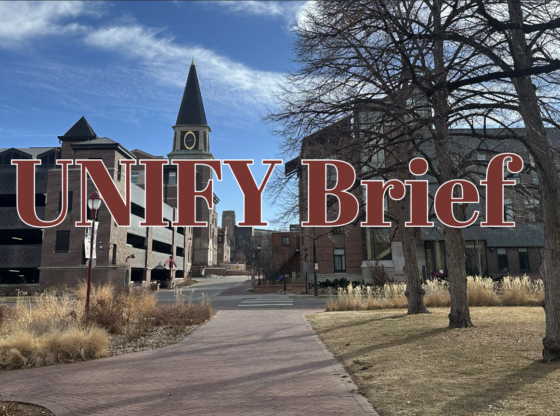Welcome back to “The Unify Brief,” where we track the latest developments shaping the nation. Here’s what you need to know this week.
Trump budget proposal
On Friday, May 2, President Trump’s administration put forward a new budget proposal for 2026 federal spending. The plan outlines a significant shift in spending priorities, aiming to cut $163 billion from non-defense discretionary programs, while increasing defense spending by 13% to over $1 trillion and significantly boosting Homeland Security funding.
The budget reflects the Trump administration’s continued embrace of its “America First” agenda that prioritizes military strength and scaled-back federal involvement in domestic programs. The proposed cuts target areas such as public health, education, housing, environmental protection and foreign aid.
Agencies such as the Department of Health and Human Services and the Department of Education are among those expected to see steep reductions. These proposed cuts are part of a broader effort led by the White House’s Department of Government Efficiency (DOGE) to cut and reallocate resources toward defense and security.
Critics argue that the plan disproportionately impacts working-class Americans and vital public services. As a presidential budget proposal, it serves as a policy blueprint and will undergo significant scrutiny and negotiation in Congress.
Local: Trump plans to unveil federal budget proposal on Friday (The Denver Gazette)
National: Trump budget proposes $1 trillion for defense, slashes education, foreign aid, environment, health and public assistance (CNN)
What other college campuses have to say: As of Sunday, May 4, no college campuses have reported on this development.
Trump sues Colorado and Denver
On Friday, May 2, the U.S. Department of Justice (DOJ) filed a federal lawsuit against Colorado and the city of Denver, alleging that their “sanctuary” policies obstruct federal immigration enforcement and violate the Constitution’s Supremacy Clause. The lawsuit, filed in a Denver court, targets Governor Jared Polis, Mayor Mike Johnston and Attorney General Phil Weiser, claiming that state and local laws limiting cooperation with Immigration and Customs Enforcement (ICE) have interfered with national immigration efforts.
The DOJ specifically cites a case involving the Venezuelan gang Tren de Aragua, alleging that the group has taken control of an apartment complex in Aurora due to relaxed enforcement. Local officials dispute this claim but acknowledge isolated criminal incidents and reject claims of widespread gang control.
This legal action is part of a broader strategy by the Trump administration to crack down on sanctuary jurisdictions across the country, following similar lawsuits filed against cities like Chicago and Rochester, N.Y.
In response, Colorado and Denver leaders have defended their policies. Mayor Johnston called the lawsuit “legally baseless,” asserting that Denver has broken no laws and will not be intimidated by federal legal threats. Governor Polis’ office emphasized that Colorado is not a sanctuary state and regularly cooperates with local, state and federal law enforcement agencies.
State officials also reiterated the need for comprehensive immigration reform rather than politically motivated lawsuits.
The case could set significant legal precedents regarding the balance of power between federal immigration authority and local jurisdiction, and it’s likely to fuel ongoing national debates over immigration, public safety and states’ rights.
Local: Trump administration sues Colorado, Denver, alleging blame for Aurora apartment debacle (Sentinel Colorado)
National: Trump Administration Sues Colorado and Denver Over Immigration Policies (The New York Times)
What other college campuses have to say: As of Sunday, May 4, no college campuses have reported on this development.
Marco Rubio juggles two leadership positions
Senator Marco Rubio has become a key figure in President Trump’s administration, recently assuming the roles of both Secretary of State and acting National Security Adviser. A dual appointment has not been seen in the presidential cabinet since Henry Kissinger in the 1970s.
This consolidation of power follows the dismissal of Mike Waltz due to a security breach involving the use of a private messaging app to discuss classified military operations.
Rubio’s expanded responsibilities have raised concerns among lawmakers. Senator Mark Warner, the top Democrat on the Senate Intelligence Committee, questioned the feasibility of effectively managing both demanding roles, highlighting the unprecedented nature of such consolidation in modern times. Despite concerns about the concentration of power, the administration has defended Rubio, emphasizing his loyalty and effectiveness.
Local: Now a trusted ally, ‘Little Marco’ gets Trump’s big jobs (The Denver Gazette)
National: White House actively working to answer how Rubio will balance 2 top national security roles (CNN)
What other college campuses have to say: As of Sunday, May 4, no college campuses have reported on this development.
Take Action:
At DU:
- Engage in conversations with professors or other faculty members to learn more.
- Stay informed and up to date with news and developments surrounding these topics.









